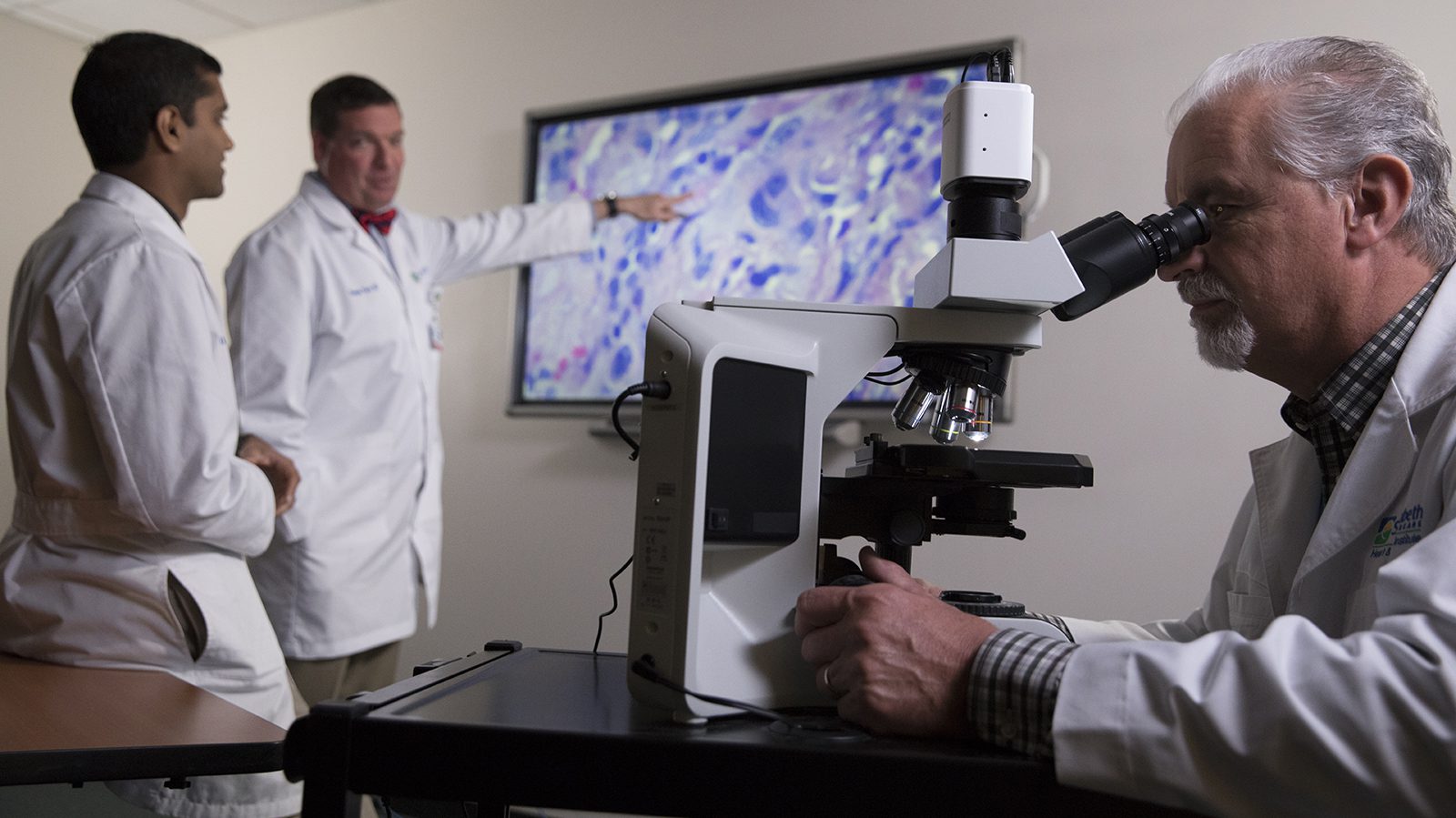Liver Cancer
Liver cancer begins in your liver, your largest internal organ. Your liver has a vital role in absorbing nutrients your body needs to function.
Several types of cancer can begin in the liver. They include:
Most cancer found in the liver is secondary liver cancer (metastatic liver cancer). The cancer will start in another part of the body and spread to the liver. These tumors are treated based on their primary cancer site or where the cancer started.

Make an appointment
For more information, please contact your oncologist or the Cancer Care Center at (859) 301-4000.
Causes of Liver Cancer
Liver cancer can occur in people with no underlying diseases. In others, liver cancer might be associated with:
- Cirrhosis
- Hepatitis
- Hemochromatosis
Risk Factors for Liver Cancer
Risk factors associated with developing liver cancer include:
- Diabetes
- Environmental exposure.
- Excessive alcohol consumption.
- Fatty liver disease.
Symptoms of Liver Cancer
Symptoms of liver cancer include:
- Abdominal pain and swelling.
- Changes in bowel habits.
- Feeling bloated.
- Loss of appetite.
- Nausea and vomiting.
- Unexplained fatigue.
- Unexplained weight loss.
- Yellow discoloration of your skin or whites of eyes.
Diagnosing Liver Cancer
If your doctor suspects that you have liver cancer, they may run tests to determine the stage of cancer to develop the best treatment plan. These tests include:
- Blood tests to check genetic makeup and blood markers.
- Biopsy.
- CT scan.
- PET/CT scan.
- MRI
If you’ve been diagnosed with liver cancer, we can provide a second opinion and present treatment options.
Treating Liver Cancer
At St. Elizabeth Healthcare, we believe in caring for you, not just treating your cancer. Our holistic approach means we combine cancer treatment with working to minimize side effects and help you manage them. Our goal is to make you as comfortable as possible while we use innovative approaches to treat your cancer.
Your treatment plan for liver cancer usually begins with surgery. We also have expertise in treating liver cancer that has spread to other organs. Depending on the stage of your cancer and whether it has spread, your treatment may include:
Preventing Liver Cancer
Lifestyle changes that can reduce your risk of liver cancer include:
Your Cancer Care Team
The team includes medical oncologists specializing in immunotherapy and precision medicine, surgical oncologists, radiation oncologists, interventional radiologists, thoracic surgeons, pain management specialists, genetic counselors, pathologists, nutritionists, pharmacists, nurses and support staff. They work together to create a treatment plan that’s just right for you.


